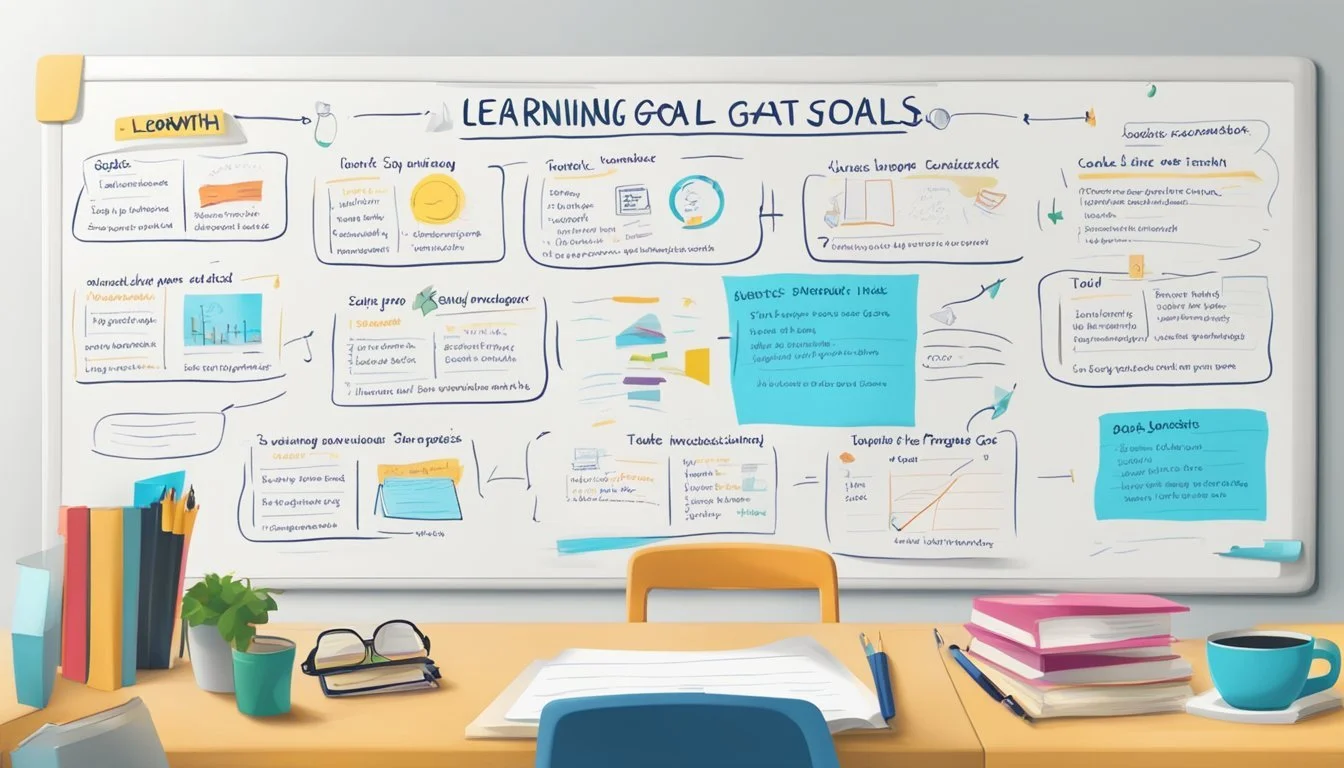13 Ways to Cultivate a Growth Mindset
Unlocking Your Potential for Success
A growth mindset is a powerful tool for personal and professional development. It involves believing that abilities and intelligence can be developed through effort, learning, and persistence. Cultivating a growth mindset can lead to increased motivation, resilience, and achievement in various aspects of life.
Adopting a growth mindset can transform how individuals approach challenges, setbacks, and opportunities for learning. By embracing this perspective, people can unlock their potential and overcome obstacles that might otherwise hold them back. This article explores 13 practical ways to foster a growth mindset and reap its benefits in daily life.
1) Embrace Challenges
Embracing challenges is a cornerstone of cultivating a growth mindset. Individuals who actively seek out difficult tasks and new experiences expand their capabilities and knowledge.
Facing challenges head-on helps build resilience and problem-solving skills. When people encounter obstacles, they have the opportunity to develop creative solutions and learn from their efforts.
Viewing challenges as opportunities rather than threats can shift one's perspective. This mindset encourages individuals to step out of their comfort zones and take calculated risks.
Embracing challenges also fosters a sense of accomplishment. Overcoming difficult tasks boosts confidence and reinforces the belief that abilities can be developed through dedication and hard work.
To cultivate this aspect of a growth mindset, individuals can start by identifying areas where they typically avoid challenges. Gradually taking on more difficult tasks in these areas can help build confidence and skills over time.
Setting stretch goals and breaking them down into manageable steps can make embracing challenges less daunting. Celebrating small victories along the way reinforces the positive aspects of tackling difficult tasks.
2) Learn from Criticis
Criticism can be a valuable tool for personal growth when approached with the right mindset. Instead of viewing feedback negatively, individuals with a growth mindset see it as an opportunity to improve and develop their skills.
They listen carefully to criticism without becoming defensive. They focus on understanding the specific points being made and consider how they can use that information constructively.
Those embracing a growth mindset actively seek feedback from others. They recognize that different perspectives can highlight areas for improvement they may have overlooked on their own.
When receiving criticism, they avoid taking it personally. Instead, they separate their sense of self-worth from the specific behavior or output being critiqued.
People with a growth mindset also practice self-reflection after receiving feedback. They consider how to implement changes based on the criticism and develop action plans for improvement.
By reframing criticism as a learning opportunity rather than a judgment, individuals can use it to fuel their personal and professional development. This approach transforms potentially discouraging experiences into catalysts for growth.
3) Stay Persistent
Cultivating a growth mindset requires unwavering persistence. Challenges and setbacks are inevitable on the path to personal development, but those with a growth mindset view these obstacles as opportunities for learning and improvement.
Persistence involves maintaining effort and focus even when faced with difficulties. It means continuing to work towards goals despite initial failures or slow progress. Those who stay persistent understand that mastery takes time and practice.
Developing persistence often involves breaking larger goals into smaller, manageable steps. This approach allows individuals to experience regular progress and maintain motivation. Each small success builds confidence and reinforces the belief that growth is possible.
Persistence also requires embracing discomfort. Growth often occurs outside of one's comfort zone, so staying persistent means pushing through uncomfortable situations and moments of self-doubt. It involves viewing struggle as a natural part of the learning process rather than a sign of inadequacy.
Cultivating persistence may involve seeking support from others, such as mentors or peers. These individuals can provide encouragement, advice, and accountability during challenging times. Surrounding oneself with supportive people reinforces the importance of persistence in achieving long-term goals.
4) Develop Resilience
Resilience is a key component of cultivating a growth mindset. It involves bouncing back from setbacks and viewing challenges as opportunities for growth rather than insurmountable obstacles.
To develop resilience, practice self-compassion when facing difficulties. Treat yourself with kindness and understanding, recognizing that everyone encounters struggles on their path to improvement.
Embrace failure as a learning experience. Analyze what went wrong and identify specific areas for improvement. This approach transforms setbacks into valuable lessons that contribute to personal growth.
Cultivate a support network of friends, family, or mentors who encourage your efforts and provide guidance during tough times. Surrounding yourself with positive influences can bolster your resilience and motivation.
Practice reframing negative situations. Instead of dwelling on problems, focus on potential solutions and the skills you can develop by overcoming obstacles.
Regularly step out of your comfort zone and take on new challenges. This builds confidence in your ability to adapt and persevere, strengthening your resilience over time.
5) Set Learning Goals
Setting specific learning goals is crucial for cultivating a growth mindset. These goals should focus on acquiring new skills or knowledge rather than achieving particular outcomes.
Learning goals encourage individuals to embrace challenges and view them as opportunities for growth. By concentrating on the process of learning, people can shift their focus away from fear of failure.
Effective learning goals are often SMART: Specific, Measurable, Achievable, Relevant, and Time-bound. This framework helps individuals create clear objectives and track their progress.
Examples of learning goals include mastering a new programming language within six months or improving public speaking skills by giving three presentations in the next quarter. These goals emphasize personal development and skill acquisition.
Regular reflection on learning goals allows individuals to adjust their strategies and celebrate progress. This practice reinforces the belief that abilities can be developed through dedication and effort, a key aspect of the growth mindset.
6) Cultivate Curiosity
Curiosity is a powerful driver of growth and learning. People with a growth mindset actively seek out new information and experiences to expand their knowledge and skills.
They ask questions, explore different perspectives, and remain open to new ideas. This inquisitive approach helps them uncover opportunities for personal and professional development.
Cultivating curiosity involves stepping out of one's comfort zone and embracing unfamiliar subjects or activities. It means being willing to admit when you don't know something and viewing it as a chance to learn rather than a weakness.
Curious individuals often engage in diverse hobbies, read widely across various topics, and seek out conversations with people from different backgrounds. They approach challenges with a sense of wonder and excitement, eager to discover new solutions.
By fostering curiosity, individuals can maintain a lifelong love of learning and continuously adapt to changing circumstances. This mindset fuels creativity, innovation, and personal growth, leading to a more fulfilling and dynamic life experience.
7) Accept Imperfection
Accepting imperfection is a crucial aspect of developing a growth mindset. It involves recognizing that mistakes and failures are natural parts of the learning process. Rather than striving for flawlessness, individuals can focus on progress and improvement.
Embracing imperfection allows for greater self-acceptance and reduced stress. People who accept their flaws tend to be more resilient in the face of setbacks. They view challenges as opportunities for growth rather than threats to their self-worth.
Practicing self-compassion is key to accepting imperfection. This means treating oneself with kindness and understanding when facing difficulties or making mistakes. It involves acknowledging that everyone has strengths and weaknesses.
Setting realistic goals and expectations can help in accepting imperfection. By recognizing limitations and focusing on gradual improvement, individuals can avoid the pressure of unrealistic standards. This approach fosters a more positive and sustainable path to personal growth.
Accepting imperfection also extends to others. Recognizing that everyone makes mistakes can lead to more empathetic and supportive relationships. This mindset encourages collaboration and learning from diverse perspectives.
8) Celebrate Effort
Celebrating effort is a crucial aspect of cultivating a growth mindset. This practice shifts focus from outcomes to the process of learning and improvement.
Recognizing hard work and persistence reinforces the value of effort. It encourages individuals to continue striving, even when faced with challenges or setbacks.
Acknowledging effort helps build resilience and motivation. When people feel their hard work is appreciated, they are more likely to maintain their drive and enthusiasm for learning.
This approach also fosters a positive learning environment. It creates a culture where trying new things and taking risks are encouraged, rather than feared.
Celebrating effort can take many forms. It might involve verbal praise, written acknowledgments, or small rewards for dedication and perseverance.
The key is to recognize the journey, not just the destination. This mindset shift helps individuals understand that growth and improvement are ongoing processes, not fixed endpoints.
By consistently celebrating effort, people develop a stronger belief in their ability to learn and grow. This belief becomes a powerful driving force for continued personal and professional development.
9) Focus on Growth
Cultivating a growth mindset involves consistently directing attention towards personal development and improvement. This approach emphasizes the importance of learning from experiences and challenges rather than dwelling on setbacks or failures.
Individuals who focus on growth view obstacles as opportunities to expand their skills and knowledge. They actively seek out new experiences and embrace challenges, recognizing them as chances to learn and develop.
A key aspect of focusing on growth is celebrating effort and progress rather than solely valuing end results. This shift in perspective encourages individuals to persist in the face of difficulties and maintain motivation throughout their journey.
By concentrating on growth, people can develop resilience and adaptability. They become more open to feedback and criticism, seeing these as valuable inputs for their ongoing development rather than personal attacks.
Adopting a growth-focused mindset also involves setting realistic goals and creating action plans to achieve them. This process helps individuals track their progress and stay motivated as they work towards self-improvement.
10) Practice Self-Reflection
Self-reflection is a powerful tool for cultivating a growth mindset. It involves examining one's thoughts, behaviors, and experiences to gain deeper insights and promote personal development.
Regular self-reflection allows individuals to identify areas for improvement and recognize their progress over time. This practice encourages a more open and adaptable approach to challenges and learning opportunities.
One effective method of self-reflection is journaling. Writing down thoughts and experiences can help clarify emotions and uncover patterns in thinking or behavior.
Another approach is meditation or mindfulness exercises. These practices can enhance self-awareness and provide a clearer perspective on personal growth goals.
Setting aside dedicated time for self-reflection is crucial. This could be a few minutes each day or a longer session weekly.
Asking thoughtful questions during self-reflection can guide the process. Examples include: "What did I learn today?" or "How can I approach this challenge differently?"
Self-reflection also involves acknowledging both successes and setbacks. Recognizing achievements reinforces a growth-oriented outlook, while analyzing failures provides valuable learning opportunities.
11) Seek Feedback
Actively seeking feedback is a crucial aspect of developing a growth mindset. By requesting input from others, individuals open themselves up to new perspectives and opportunities for improvement.
Constructive criticism provides valuable insights that can help identify areas for growth and development. Those with a growth mindset view feedback as a tool for learning rather than a personal attack.
When receiving feedback, it's important to listen attentively and ask clarifying questions. This demonstrates a willingness to understand and learn from the input provided.
Implementing actionable steps based on feedback received can lead to tangible improvements. It's beneficial to follow up with those who provided feedback to show appreciation and share progress made.
Seeking feedback from diverse sources, including peers, mentors, and supervisors, can offer a well-rounded view of one's performance and potential areas for growth. This practice fosters continuous learning and development.
12) Surround Yourself with Learners
Cultivating a growth mindset involves surrounding oneself with individuals who embrace learning and personal development. These people can inspire and motivate others to pursue their own growth journey.
Engaging with lifelong learners exposes one to new ideas, perspectives, and knowledge. It creates an environment that encourages curiosity, questioning, and continuous improvement.
Seeking out mentors, joining study groups, or participating in professional networks can provide valuable opportunities for learning and growth. These connections often lead to collaborative projects and shared experiences that foster personal development.
Online communities and social media platforms dedicated to learning can also be valuable resources. They allow individuals to connect with like-minded people who are committed to expanding their knowledge and skills.
By consistently interacting with growth-oriented individuals, one can develop a more positive attitude towards challenges and setbacks. This exposure helps reinforce the belief that abilities can be developed through dedication and hard work.
13) Use the Power of Yet
The word "yet" holds transformative potential in cultivating a growth mindset. It shifts perspective from inability to possibility, encouraging individuals to view challenges as opportunities for improvement rather than insurmountable obstacles.
Incorporating "yet" into self-talk and conversations can reframe negative thoughts. Instead of saying "I can't do this," one might say "I can't do this yet," implying future capability and growth.
This simple linguistic change promotes perseverance and resilience. It acknowledges current limitations while simultaneously affirming the potential for future success through effort and learning.
Educators and parents can leverage the power of yet to foster growth mindsets in children. When a student struggles, adding "yet" to feedback can maintain motivation and encourage continued effort.
In professional settings, leaders can use this technique to promote skill development and innovation. It creates an environment where mistakes are viewed as stepping stones to improvement rather than failures.
The power of yet aligns with the core principles of a growth mindset. It emphasizes the importance of process over immediate results and reinforces the belief that abilities can be developed through dedication and hard work.
Understanding a Growth Mindset
A growth mindset empowers individuals to embrace challenges and view them as opportunities for learning and development. It shapes how people approach obstacles, effort, and success.
Definition and Key Characteristics
A growth mindset is the belief that abilities and intelligence can be developed through dedication, hard work, and learning. People with this mindset see challenges as chances to improve and grow. They embrace effort as a path to mastery and persist in the face of setbacks.
Key characteristics include:
Embracing challenges
Valuing effort and persistence
Learning from criticism and feedback
Finding inspiration in others' success
Viewing failures as learning opportunities
These traits enable individuals to continuously improve and achieve their goals.
Growth Mindset vs. Fixed Mindset
A growth mindset contrasts sharply with a fixed mindset. Those with a fixed mindset believe their abilities are static and unchangeable.
Growth Mindset Fixed Mindset Embraces challenges Avoids challenges Persists through obstacles Gives up easily Sees effort as path to mastery Views effort as fruitless Learns from criticism Ignores useful feedback Finds lessons in others' success Feels threatened by others' success
People with a growth mindset tend to achieve more, as they believe their talents can be developed through hard work, good strategies, and input from others. This outlook fosters resilience and a love of learning.
Benefits of Cultivating a Growth Mindset
Adopting a growth mindset yields significant advantages in various aspects of life. It enhances personal development, boosts professional growth, and positively impacts learning outcomes.
Personal Development
A growth mindset fosters resilience and adaptability. Individuals embracing this mindset view challenges as opportunities for growth rather than threats. This perspective shift leads to increased self-confidence and a willingness to step out of comfort zones.
People with a growth mindset tend to have higher self-esteem. They understand that their abilities can be developed through effort and persistence. This belief reduces fear of failure and promotes a more positive self-image.
Stress reduction is another key benefit. By reframing setbacks as learning experiences, individuals experience less anxiety when faced with obstacles. This mindset promotes emotional well-being and better mental health overall.
Professional Growth
In the workplace, a growth mindset drives innovation and creativity. Employees who believe in their capacity to learn and improve are more likely to propose new ideas and take calculated risks.
Career advancement often follows. Those with a growth mindset actively seek feedback and continuously work on self-improvement. This proactive approach to professional development makes them valuable assets to their organizations.
Collaboration skills also improve. A growth mindset fosters open-mindedness and the ability to learn from colleagues. This leads to stronger team dynamics and more effective problem-solving in group settings.
Impact on Learning
Students with a growth mindset typically achieve better academic results. They approach studying with enthusiasm, viewing it as an opportunity to expand their knowledge and skills.
Persistence in the face of academic challenges increases. Rather than giving up when confronted with difficult subjects, growth-minded learners see these as chances to stretch their abilities.
Lifelong learning becomes a natural habit. Those who believe in their capacity for growth are more likely to pursue new knowledge and skills throughout their lives, staying adaptable in an ever-changing world.







